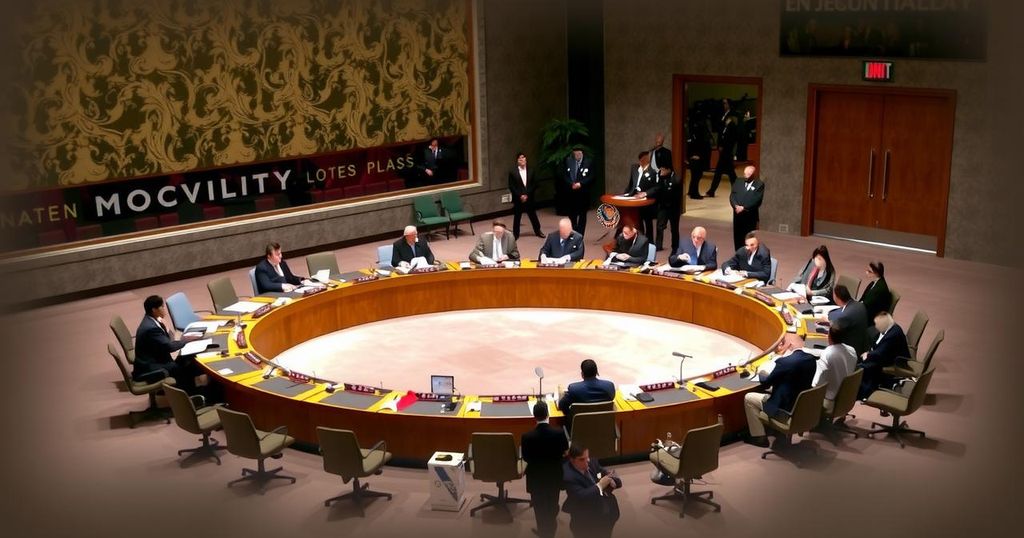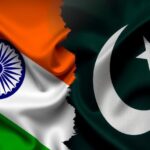Conflicts
Politics
AFGHANISTAN, AKRAM, ASIA, CHINA, COUNTER-TERRORISM, EUROPE, EUROPE/ASIA, FOREIGN POLICY, FRANCE, INDIA, INTERNATIONAL RELATIONS, JAISH - E - MOHAMMAD, JAMMU, JAMMU AND KASHMIR, JAPAN, LASHKAR - E - TAIBA, MEXICO, MU, MUMBAI, MUNIR AKRAM, NORTH AMERICA, PAKISTAN, RUSSIA, SECURITY, TERRORISM, U. S, UK, UNITED NATIONS, UNITED NATIONS SECURITY COUNCIL, UNSC
Nia Simpson
Pakistan’s Temporary Membership in the UNSC: A Double-Edged Sword for Global Security
Pakistan began its two-year term as a temporary member of the UNSC on January 1, 2025, its eighth term. Diplomatic promises to combat terrorism are met with skepticism due to Pakistan’s past support for terrorist organizations. India expresses particular concern that Pakistan may exploit its UNSC position to promote its agenda, especially regarding Kashmir, and could undermine counter-terrorism efforts. As Pakistan navigates this role, observers will gauge its genuine commitment to global security.
On January 1, 2025, Pakistan began its two-year term as a temporary member of the United Nations Security Council (UNSC), marking its eighth term in this capacity. Pakistani diplomats herald this moment as an opportunity for the nation to actively engage in addressing global challenges. However, significant reservations persist, particularly from India, concerning Pakistan’s historical use of terrorism as a state instrument and whether it will exploit its UNSC position to promote its own interests.
Pakistani Ambassador Munir Akram asserted the country’s dedication to delivering “active and constructive solutions” to global issues, including terrorism. While on the surface this statement reflects a commendable objective, it is met with skepticism given Pakistan’s longstanding history of harboring and supporting terrorist organizations, especially those engaged in attacks against India. Prominent terrorist groups such as Lashkar-e-Taiba and Jaish-e-Mohammad have been linked to Islamabad’s foreign policy, raising doubts about the authenticity of its anti-terrorism commitment at the UNSC.
The UNSC plays a vital role in maintaining international peace and security, comprising 15 members, of which five are permanent members with veto power and ten are temporary members like Pakistan. Its term will last from January 1, 2025, to December 31, 2026, following Pakistan’s election to replace Japan. Although temporary members lack veto authority, they can influence debates and vote on significant resolutions.
India is particularly attentive to Pakistan’s activities at the UNSC, fearing that Pakistan might leverage its membership to advocate for its long-standing position on Kashmir. Historically, Pakistan has persistently raised this issue in various international venues, and scrutiny is warranted regarding its approach in the Security Council. Furthermore, Pakistan’s position may enable it to influence or even obstruct efforts aimed at sanctioning terrorist entities, which brings to question its sincerity in combating terrorism.
Additionally, Pakistan’s UNSC seat could amplify its global influence, especially among Muslim nations, by presenting itself as a significant contributor to anti-terrorism efforts while simultaneously asserting narratives that serve its geopolitical interests. These dynamics necessitate vigilant observation by the international community.
The upcoming term presents Pakistan with a pivotal choice: to affirm its role as a responsible member committed to global security, or to continue its historical patterns of promoting regional instability under the guise of counterterrorism. Observers will need to monitor whether Pakistan’s actions on the UNSC will align with its stated intentions or if it will exploit its platform for ideological means.
In conclusion, while Pakistan’s promise to combat terrorism from within the UNSC appears optimistic, it must be scrutinized against its past conduct as a supporter of various groups conducting cross-border terrorism. As Pakistan embarks on this new role, the global community must adopt a watchful stance to ensure that its actions reflect genuine intent rather than ulterior motives that could undermine both regional and global stability.
Pakistan’s recent accession to the United Nations Security Council (UNSC) as a temporary member signifies a continuation of its diplomatic efforts on the global stage. Its previous terms have been marked by controversy, particularly regarding its engagement in regional conflicts and historical ties to extremist organizations. The appointment has raised concerns from nations such as India, which has long accused Pakistan of supporting terrorism. As a significant body responsible for international peace, the UNSC’s decisions and member actions will bear heavily on global diplomatic relations during Pakistan’s tenure.
The discourse surrounding Pakistan’s UNSC membership is characterized by apprehension, primarily stemming from its historical associations with terrorism. As the international community evaluates Pakistan’s actions over the next two years, it remains crucial to discern whether the nation will honor its commitments to combating terrorism or prioritize its strategic interests at the cost of regional and global security. The outcome of this scrutiny will be pivotal in determining the effectiveness of Pakistan’s role within the UNSC.
Original Source: www.financialexpress.com








Post Comment